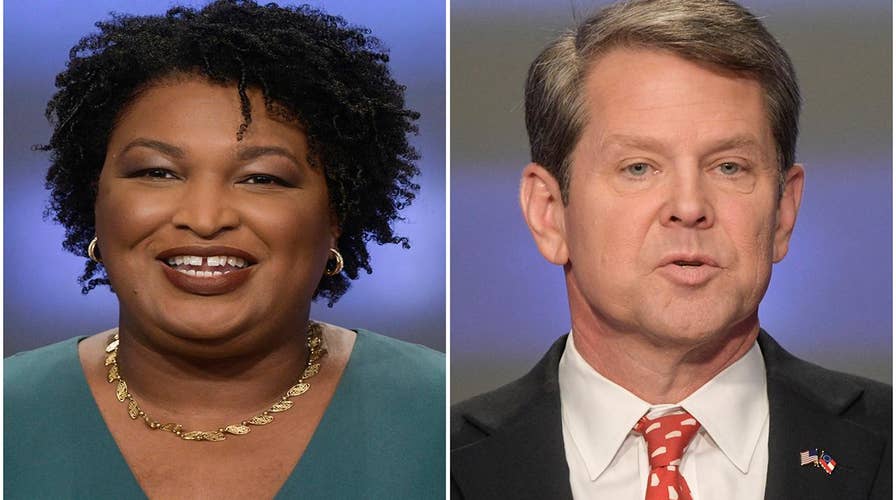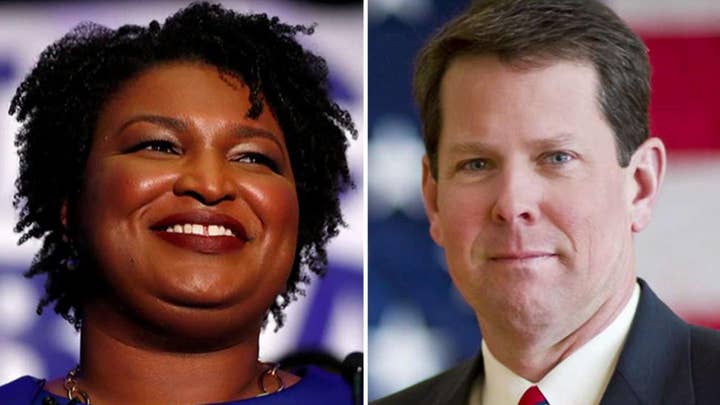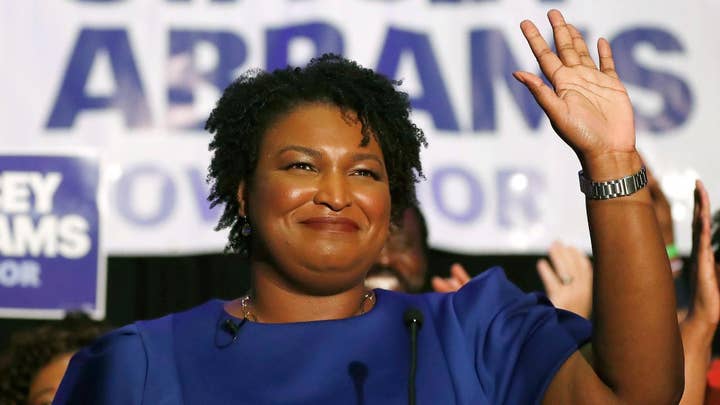Could Georgia's 'exact match' law tip governor’s race?
53,000 voter registrations on hold due to new law.
Georgia must make changes to its procedures to make it easier for people flagged under a state law to vote, a federal judge ruled Friday.
Civil rights groups raised concerns about the "Exact Match" law, accusing Republican gubernatorial candidate and Secretary of State Brian Kemp of engaging in voter suppression of minorities amid a tight race against Democratic opponent Stacey Abrams.
U.S. District Judge Eleanor L. Ross said Kemp’s restrictions raised “grave concerns for the Court about the differential treatment inflicted on a group of individuals who are predominantly minorities,” the Washington Post reported.
Civil rights groups sued Kemp for purging thousands of inactive voters from the rolls and enforcing the law, which placed more than 50,000 voter registrations in limbo because information on their applications appeared different from government records.
The law flags voter registrations found to have discrepancies, such as a dropped hyphen. Voters can settle the discrepancies by providing proof of identity.
Under Kemp, who oversees state elections, state procedures require that those flagged as potential noncitizens be cleared first by a deputy registrar.
Ross’ injunction requires the state to change its procedures to allow more than 3,100 people prove their citizenship more easily, such as by showing a U.S. passport or other documentation -- and only to a poll manager.
“With respect to Tuesday’s election, we deem this a total victory in our fight against Secretary of State Brian Kemp’s exact match scheme,” said Kristen Clarke, president and executive director of the Lawyers’ Committee for Civil Rights Under Law. “Our goal in filing this lawsuit was to ensure that no eligible voter was unfairly denied the right to vote because of this discriminatory voter suppression effort."
'THIS AIN'T HOLLYWOOD!': PENCE CALLS OUT OPRAH, WILL FERRELL IN GA STUMP SPEECH
Kemp was also ordered to issue a news release explaining how potential voters who are flagged could still vote by proving their citizenship, as well as a phone number for them to call with questions.
Kemp’s spokeswoman, Candice L. Broce, called the ruling “a minor change to the current system.”
Kemp's involvement in the election procedures while a candidate has also drawn scrutiny. During a debate against Abrams he said he would not recuse himself in other election-related issues.
The race has drawn national attention, with Abrams receiving endorsements from Oprah Winfrey and former President Barack Obama.
Vice President Mike Pence has campaigned for Kemp at rallies in Augusta and Dalton, while President Trump is expected to support the candidate in Macon on Sunday.
A spokeswoman for the state attorney general's office declined to comment on whether it would appeal the ruling.
















































